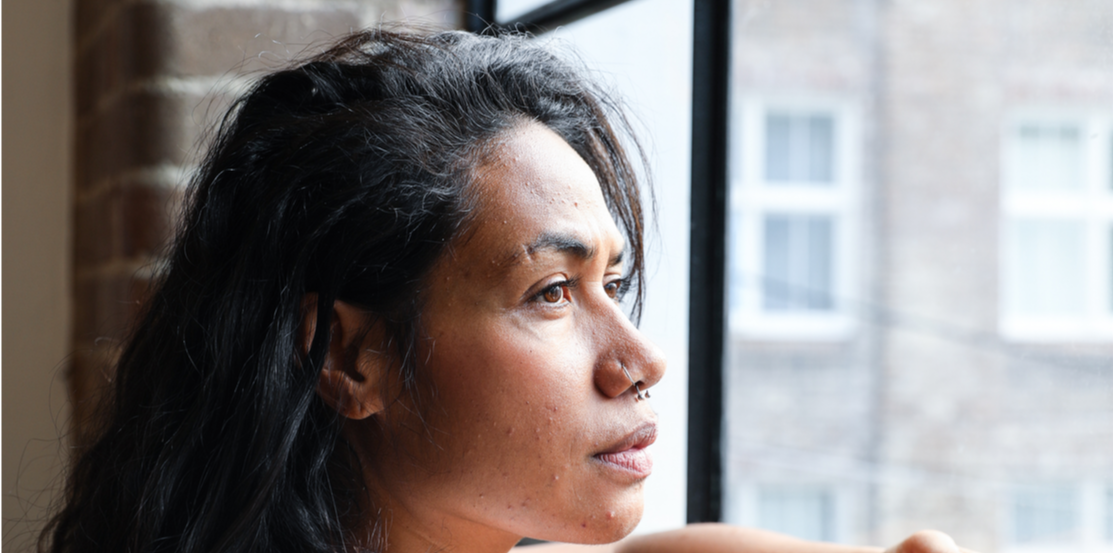COVID-19 is New. Gender-Based Violence Isn't
For women around the world who experience violence in their homes, every day is an emergency. Every day is life or death. For these women and their children, the COVID-19 crisis presents complex health risks that go beyond the disease itself.
UN Secretary-General António Guterres recently called the global surge in domestic violence due to country lockdowns “horrifying.”
He’s right.
The truth is, gender-based violence (GBV) has always been horrifying. But now, with governments mandating social distancing and self-isolation, countless women and girls are even more isolated as they are asked to remain in the very place that is the most dangerous for them: Home.
Grassroots feminist organizations knew what was coming. For some women, the lockdowns would mean increased frequency and severity of the violence they endure. For others, it would mean experiencing violence for the first time. Fear, anxiety, and economic pressure amount to increased household stress, with women bearing the brunt of that stress while trapped with abusive household members. Moreover, with schools, workplaces, restaurants, and community programs closed, women and their children have fewer places to turn to for refuge.
In China, police in Jianli County in southern Hubei province reported three times the number of domestic violence incidents in February compared to the same time last year. In France, police have reported a 30% increase in domestic violence and Spain saw an 18% increase in calls to its domestic violence emergency line in the first two weeks of lockdown. Now, we are hearing similar patterns from our community partners on the ground in Canada.
Gender-based violence is preventable
Governments could have never predicted the impact of COVID-19, but they certainly could have predicted the spike in GBV that would come with it. After all, gender-based violence is not a new phenomenon and there isn’t a country in the world that is free from it.
Before COVID-19 was even deemed a threat in Canada, I called gender-based violence a ‘national emergency’ for Canadian women in Aura Freedom’s Beijing +25 report entitled Relentless Resilience, released in early 2020. I was not being dramatic.
Many of my colleagues around the world would say the same thing about GBV in their own countries. According to UN Women, 1 in 3 women globally will experience violence in her lifetime. 137 women are killed every day by an intimate partner or family member. That’s 50,000 women killed per year, globally. Pandemic proportions, one might say.
Marginalized women are at an even higher risk of GBV, including Indigenous women, racialized women, women living with disabilities, women living in poverty, rural women, migrant women, single mothers, and others facing inequities.
So, if we already know that GBV is an urgent issue in every country and studies around the world have shown that women and girls are even more vulnerable during emergencies, then why weren’t countries prepared for these surges in domestic violence?
For governments to effectively prevent GBV during times of emergency, they must be actively preventing GBV at all times. Moreover, plans to address gender-based violence in times of emergency must precede national measures like lockdowns to avoid what is happening around the world right now.
The problem is that in many countries, women’s organizations, domestic violence shelters, and sexual assault centers are hanging by a thread at the best of times. Chronically underfunded and overworked, grassroots organizations addressing GBV rarely receive what they need, even though they are doing some of the most important work in the world. And now, they are up against even more.
Immediate gendered responses are needed, but so are long-term solutions
When responding to global health crises, it is imperative to do so with women and girls at the forefront. This doesn’t just mean considering women, who comprise 70% of the global healthcare workforce. It means bringing them to the table, listening to them, and employing them to create sensitive and powerful responses that will not only flatten curves but tend to the unique needs of women and girls during uncertain times. Partnerships and collaborations across sectors are key and funding for grassroots organizations responding to GBV must be adequate at all times – not just during emergencies.
The current global trend of increased domestic violence during COVID-19 lockdowns also points to a dire need for long–term solutions that reach beyond this pandemic. Education to tackle the root causes of gender-based violence must be prioritized by leaders. Gender inequality, misogyny, systemic racism, colonialism, ableism, homophobia, and harmful gender norms must be addressed to create an equal world that is finally free of gender-based violence.
This will take long-term, robust investments, and proactive planning. It will take courage, resilience, and patience. And although governments might not be able to ‘see’ the changes happening in real-time, it is the only way to truly end the violence for good.
In a world that has collectively mobilized to respond to COVID-19, from finding a vaccine to softening the blow to the economy, can we not mobilize in the same way for the millions of women and girls who have experienced violence at pandemic rates for centuries?
Of course, we can. All that is needed is political will.
Ending GBV will benefit everyone
When women and girls are healthy and safe, their families and communities thrive. When countries consider the rights of women and girls a national priority, those countries flourish.
- Ending GBV will bring the world increased health, wealth, peace, and climate justice.
- Ending GBV will help achieve the Sustainable Development Goals.
- Ending GBV can help get our post-COVID world back on track.
When will women and girls matter enough? Gender-based violence is a global pandemic. Act accordingly.
Written by Aura Freedom’s Executive Director Marissa Kokkoros for Women Deliver



